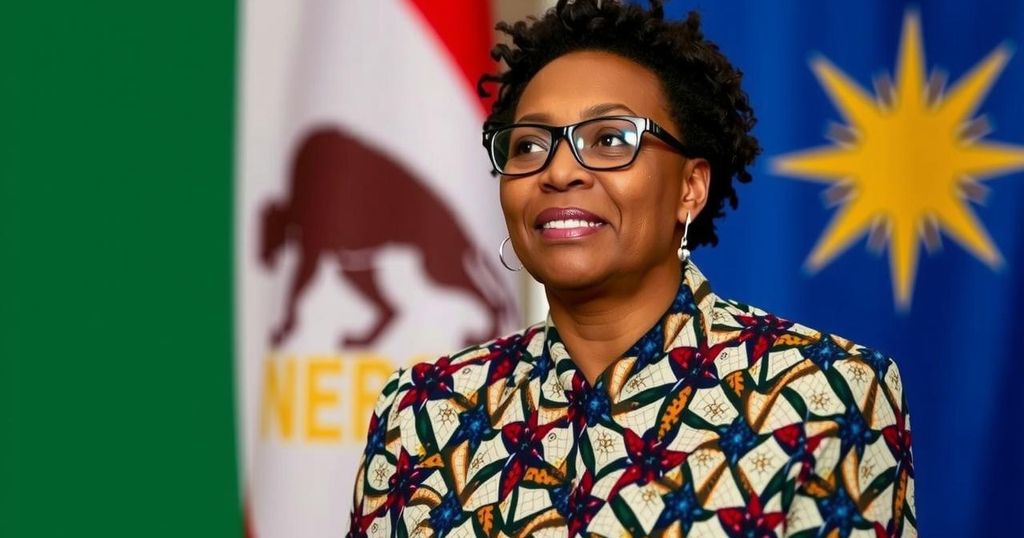Namibia on the Verge of Electing Its First Female President
Netumbo Nandi-Ndaitwah is expected to become Namibia’s first female president, having received approximately 58% of the vote in a disputed election. However, her opponent, Panduleni Itula, claims electoral malpractice and does not recognize the results. Swapo has governed since independence in 1990, facing increased scrutiny due to declining support for similar parties across the region.
Netumbo Nandi-Ndaitwah, a prominent figure from the ruling South West Africa People’s Organisation (Swapo), is poised to become Namibia’s inaugural female president following the counting of over 90% of votes from a recent contentious election. According to the electoral commission, Nandi-Ndaitwah secured approximately 58% of the votes, while her closest competitor, Panduleni Itula of the Independent Patriots for Change (IPC), garnered just over 25%. Despite her apparent victory, Itula has raised allegations of electoral malpractice and his party has declared non-recognition of the election results, citing logistical challenges that hindered voter participation.
Swapo has held power in Namibia since its independence in 1990 and played a crucial role in the liberation struggle against apartheid. Prior to the elections, there were concerns about Swapo’s stability, especially following declining support for similar liberation parties in the region. Netumbo Nandi-Ndaitwah, currently serving as vice-president, has been a trusted leader for 25 years. If confirmed as president, she would join Tanzania’s Samia Suluhu Hassan as one of Africa’s few female leaders. To avoid a runoff election, a candidate must achieve a majority of over 50%. Itula, a trained dentist, also managed to decrease Swapo’s share of the votes in the previous presidential election significantly. His party subsequently announced intentions to seek judicial recourse, urging individuals who encountered voting obstacles to file police reports.
The recent election in Namibia represents a significant moment in the nation’s political landscape, particularly as it may lead to the election of the first female president. The Swapo party’s long-standing governance since Namibia’s independence in 1990 embodies its historical role in the anti-apartheid movement. Although Swapo has been a formidable political force, the challenges faced by liberation parties across Southern Africa have sparked discussions about the potential for political change. The controversies surrounding the election process, including accusations of malpractice by the opposing party, highlight existing tensions within Namibia’s political arena.
In summary, Netumbo Nandi-Ndaitwah appears on track to become Namibia’s first female president, with an electoral commission count showing her leading the vote. However, allegations of electoral malpractice from her main rival add complexity to the situation. Swapo’s historical dominance is now under scrutiny as it contends with challenges similar to those faced by other regional liberation parties. As this election unfolds, the repercussions may significantly influence Namibia’s political future.
Original Source: www.bbc.com




Post Comment